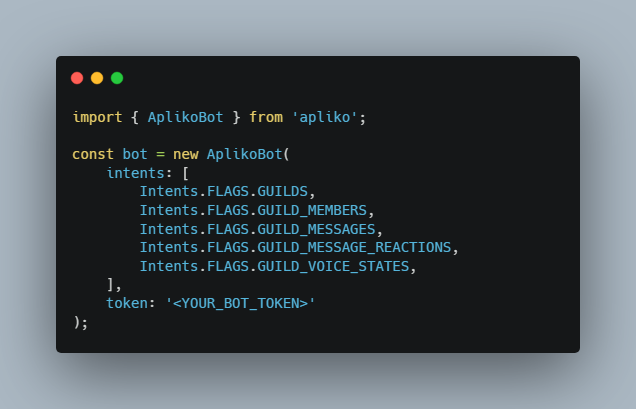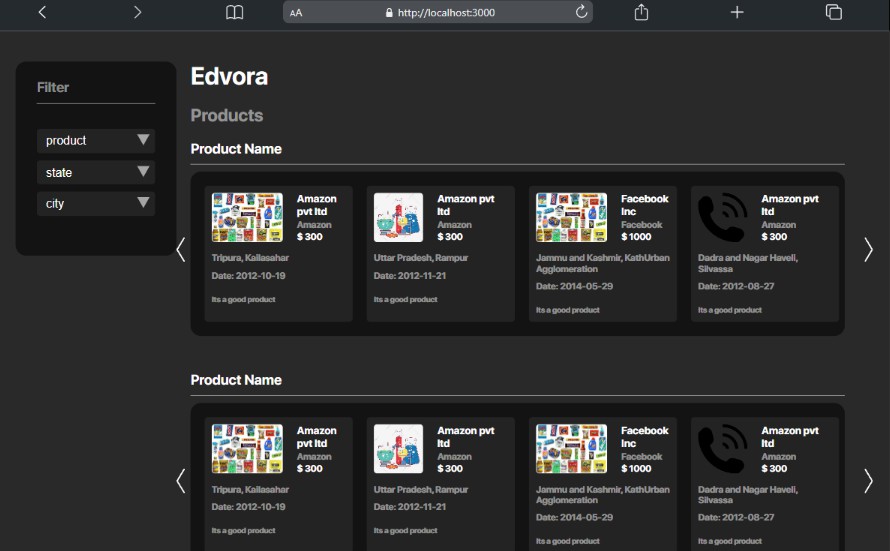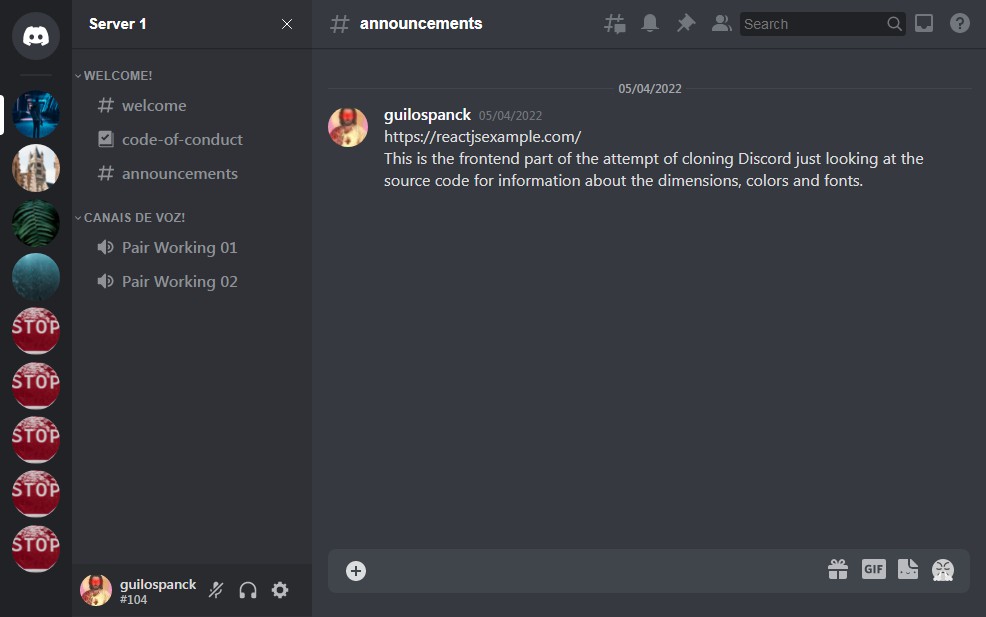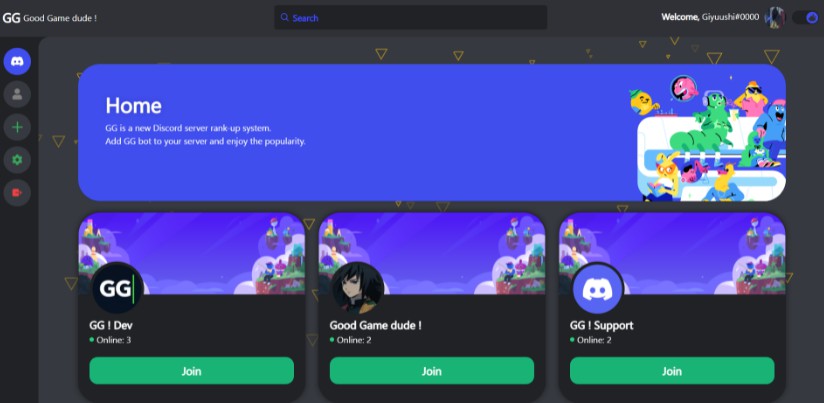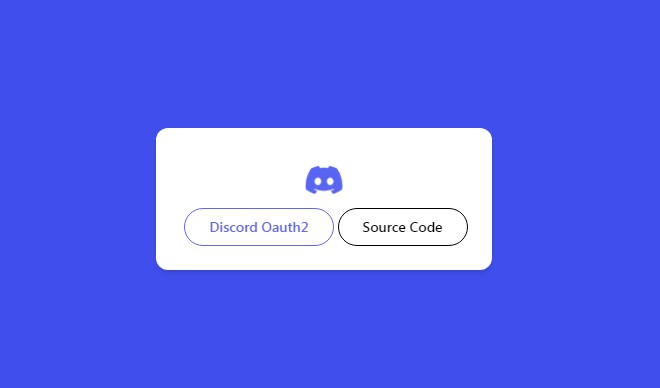? Apliko: A TypeScript Discord.js framework
Apliko is a Discord.js framework aimed at making the work of professionals easier and faster. It uses a collection of applications to accomplish common tasks in Discord bots. These include slash commands, channel controllers, questionnaires, and panels.
Use Apliko in your project
Apliko has not yet been published to NPM so you’ll have to add a file dependency. Simply clone this repository into a new folder, and add this line to your depdendencies in package.json
"apliko": "file:path/to/Apliko"
Docs
Incomplete, but some information can be seen below
Getting Started
Here’s some code to get your simple bot up and running
import { AplikoBot } from 'apliko';
const bot = new AplikoBot(
intents: [
Intents.FLAGS.GUILDS,
Intents.FLAGS.GUILD_MEMBERS,
Intents.FLAGS.GUILD_MESSAGES,
Intents.FLAGS.GUILD_MESSAGE_REACTIONS,
Intents.FLAGS.GUILD_VOICE_STATES,
],
token: '<YOUR_BOT_TOKEN>'
);
bot.client.on('ready', async () => {
// Do something
});
bot.login();
Simple enough, right? Well you may find yourself in a situation where you’d like to add some properties in the AplikoBot class since it get’s passed as a parameter to all other Apliko classes, for example a connection to a database, a websocket connection, or maybe a payment gateway. While there’s many ways to go about adding these properties I recommend using basic class inheritance to mix your properties into existing Apliko classes. Here’s an example of a slash command using my own AplikoBot class.
export class InheritBot extends AplikoBot {
private _database: Database;
public constructor() {
super(
intents: [
Intents.FLAGS.GUILDS,
Intents.FLAGS.GUILD_MEMBERS,
Intents.FLAGS.GUILD_MESSAGES,
Intents.FLAGS.GUILD_MESSAGE_REACTIONS,
Intents.FLAGS.GUILD_VOICE_STATES,
],
token: 'YOUR_BOT_TOKEN'
);
this._database = new Database();
this.commands.registerCommands(new MySlashCommand(this));
}
public get database() {
return this._database;
}
}
export class InheritSlashCommand extends SlashCommand {
private _myBot: InheritBot;
constructor(myBot: InheritBot) {
super(myBot); // Pass myBot to the SlashCommand constructor since it extends AplikoBot
this._myBot = myBot; // Store myBot in a separate variable so we save the types
}
// Override the getter for AplikoBot to return InheritBot instead
override get bot(): MyBot {
return this._myBot
}
}
@DefineCommand
@NameCommand('rnchannel')
@DescribeCommand('Rename a channel')
export class MySlashCommand extends InheritSlashCommand {
// channel and newName command options are automatically detected, more on that later ;)
@CommandExecutor
public async execute(interaction: CommandInteraction, channel: TextChannel, newName: string) {
// Rename the channel...
}
}
Global Interaction Handlers
Creating a global interaction handler means you’ll recieve all interactionCreate events. It’s recommended for components that can exist in multiple places at the same time. To create a global interaction handler, you have to extend the InteractionHandler class and decorate your functions as callbacks.
@RegisterCallbacks
export class MyInteractionHandler extends InteractionHandler {
@ButtonCallback('my_button_id')
public async handleMyButton(context: ButtonInteractionContext) {
//context.interaction...
}
}
You probably noticed that interactions are stored in a context. That’s because Apliko enables you to persist data alongside a component id. This makes doing cool things like invite components that never expire and persist across restarts incredibly easy to make.
This works by using an on-disk nosql database to store the real component id and data along with a uniquely generated string. That string replaces the components id when it’s sent to the Discord API so that when a component interaction with that string is receieved, we can retrieve the real component id and attached data to pass along to the corresponding callback.
@ButtonCallback('my_button_id')
public async handleMyButton(context: ButtonInteractionContext) {
await context.interaction.reply({
content: 'Click yes to accept',
components: ComponentsToDJS(
ActionRow
.new()
.components(
Button
.new()
.label('Yes')
.style(ButtonStyle.SUCCESS)
.id(CreateComponentInteractionData({
componentId: 'accept_invite',
data: [
channelId: context.interaction.channelId
]
})))
)
})
}
@ButtonCallback('accept_invite')
public async handleAcceptInvite(context: ButtonInteractionContext) {
const channelId = context.data.data[0] // I need to refactor this, I know lol
// add to channel based on id.....
}
Modals
Sending modals in Apliko is just as quick and easy as the rest of its features. To send a modal you use the function InteractionReplyModal as shown below.
@ButtonCallback('my_form_button')
public async openMyForm(context: ButtonInteractionContext) {
await InteractionReplyModal(this.bot, context.interaction, // this.bot contains the REST instance
Modal
.new()
.id('my_form')
.title('My Form')
.components(
TextField
.new()
.customId('my_form_field')
.title('Field')
.placeholder('This is placeholder text!')
.style(TextFieldStyle.SHORT))
);
}
Recieving modals makes use of our collector class. Just like collecting message components or messages, all you have to do is pass a key so Apliko can determine if the modal submited is the one your waiting for.
//public async openMyForm(context:...
const formResponses = await this.bot.collector.collectForm({
userId: context.interaction.user.id,
channelId: context.interaction.channelId,
modalId: 'my_form'
});
